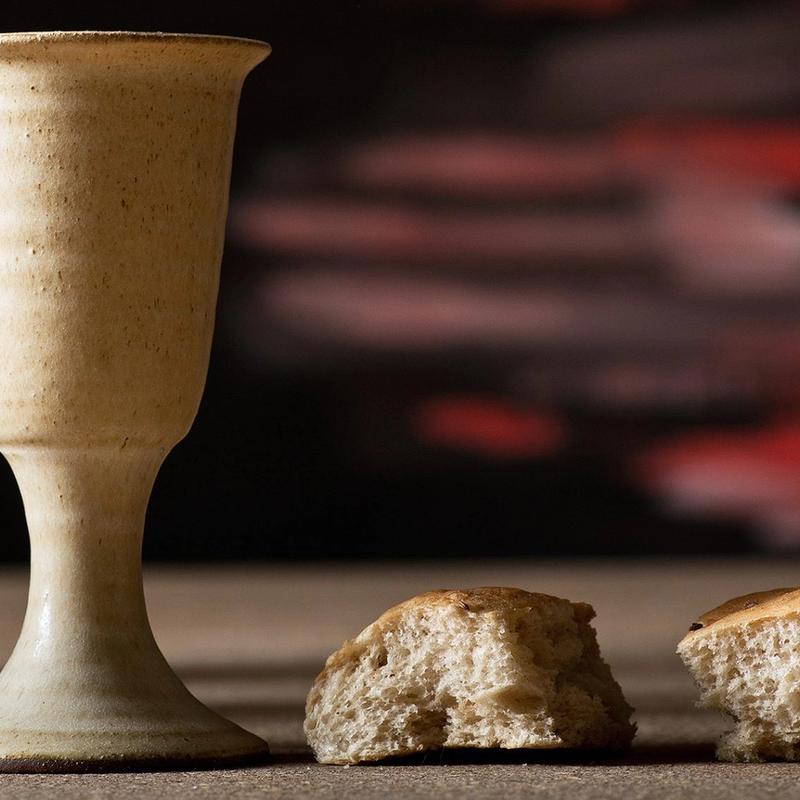One of the Apostle John’s favorite words was “abide.” He used it 40 times in his Gospel, and 24 times in his first letter! Sometimes “abide” is simply used to refer to the place where Jesus would hang out for a few days (John 1:39; 2:12; 4:40; 7:9). Other times, the word was used more figuratively to describe Jesus dwelling in his disciples by the Holy Spirit (John 14:15-26), or his disciples dwelling in him through his word (John 15:7; 2 John 1:9). Jesus said, “Abide in me, and I in you. As the branch cannot bear fruit by itself, unless it abides in the vine, neither can you, unless you abide in me” (John 15:4). Jesus lives in his people and his people live in him.
It’s telling that Jesus would use such a domestic word to describe our relationship with him. We’re called to make our home in Christ, and he makes his home in us (John 14:23). This reveals something of the intimacy that exists between the believer and Jesus. The metaphor he gives us in John 15–”I am the vine and you are the branches”–highlights the organic nature of our union with Christ. We’re connected to Jesus by faith, and his life pulsating through us produces the fruit of the Holy Spirit (John 15:5; cf. Gal 5:22-23).
John’s writings give us a clear description of what the life of abiding in Jesus looks like: It’s fruitful (John 15:5); prayerful (15:7); obedient to God’s commandments (15:10); joyful (15:11); and loving (15:12, 17). These are the fruits produced by Christ who lives in us as we abide in him. But Christ himself is the root, the source. Failure to recognize this distinction is disastrous. Each of us could pray more, be a little (or a lot) more loving, and exhibit more joy. If the call to abide in Jesus is a call to work harder at these things, we’ll find ourselves trying to do more in order to convince ourselves that we’re really in Jesus. But to abide–to be at home–is supposed to be restful, isn’t it? And isn’t that precisely what Jesus promised us when he said, “Come to me, all who labor and are heavy laden, and I will give you rest”? (Matt. 11:28)
How do I abide in Jesus?
Many people are exhausted trying to produce the fruit of abiding in Jesus, without ever resting in Jesus. How do you abide in Jesus? Jesus explained how in John 6:56, “Whoever feeds on my flesh and drinks my blood abides in me, and I in him.” Sounds pretty simple, doesn’t it? Sadly, of the hundreds that heard Jesus utter those words, only a few continued to follow him. This is perhaps why Jesus said later on to a group of Jews, “If you abide in my word, you are truly my disciples” (John 8:31). Jesus’ true disciples are those who eat his flesh and drink his blood. They are the ones who abide in him. This isn’t so much something we work at, but something we receive, and those who receive Christ’s true body and blood by faith are the ones who abide in him.
There are two ways this should be understood: First, not only does abiding in Jesus mean making our home in Christ, living in him, but it also means living off of him. In the same way that we need physical bread for the nourishment of our bodies, Jesus Christ–the bread of life–is the constant nourishment of our souls. We live off of the forgiveness that was purchased by his shed blood, and it’s that forgiveness that leads to fruitfulness.
Second, there’s at least a veiled allusion to the communion meal that Jesus would institute for the church prior to his death. This mysterious ordinance conveys the promise of the gospel to us in a tangible way, through bread and wine. One of the greatest Christian theologians to ever live, St. Augustine, commented on Jesus’ words in John 6:
This it is, therefore, for a man to eat that meat and to drink that drink, to dwell in Christ, and to have Christ dwelling in him. Consequently, he that dwelleth not in Christ, and in whom Christ dwelleth not, doubtless neither eateth His flesh [spiritually] nor drinketh His blood [although he may press the sacrament of the body and blood of Christ carnally and visibly with his teeth], but rather doth he eat and drink the sacrament of so great a thing to his own judgment.[1]
The early Christians recognized that the body and blood of Jesus were life-giving precisely because they were the body and blood of God the Son (John 1:1, 14). To abide in Jesus is first and foremost to be nourished by his life-giving flesh by faith. It’s resting in and receiving God’s grace.
Because of Jesus’ presence in us and the power of the Holy Spirit, abiding in Jesus does result in fruitfulness. We mustn’t forget, though, that this side of glory, the worms of indwelling sin are always going to blemish our obedience. We long for the day that the light and love of Jesus perfectly shine through us, no longer clouded by our own weaknesses. That day is coming, but in the meantime, we rest at home in Christ’s work for us, and receive his life-giving grace. We abide in him.
[1] Augustine of Hippo. (1888). Lectures or Tractates on the Gospel according to St. John. In P. Schaff (Ed.), J. Gibb & J. Innes (Trans.), St. Augustin: Homilies on the Gospel of John, Homilies on the First Epistle of John, Soliloquies (Vol. 7, p. 173). New York: Christian Literature Company.






